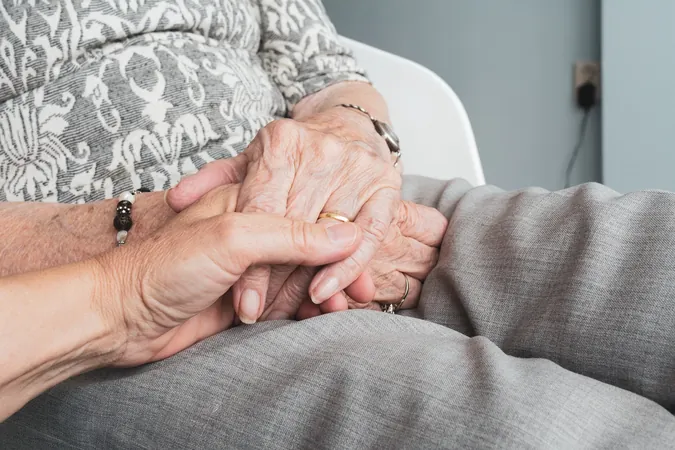
Revolutionary Remote Monitoring Transforms Cancer Surgery Recovery
2025-09-17
Author: Siti
A Game-Changer in Post-Surgery Care
A groundbreaking study led by Tracy Crane, Ph.D., RDN, at the Sylvester Comprehensive Cancer Center, has unveiled that remote perioperative monitoring (RPM) drastically enhances recovery for cancer surgery patients. This pivotal research published in the esteemed journal npj Digital Medicine highlights how RPM stacks up against traditional care methods.
The Study Explained
Involving 293 patients undergoing significant abdominal or pelvic surgeries for a variety of cancers, the randomized trial showcased the efficacy of RPM. Patients in the RPM group utilized wristband accelerometers and reported their symptoms via a mobile app at key intervals. If any data indicated a potential problem, triage nurses were quick to reach out, while the control group only received automated messages.
Impressive Results
The results were striking: RPM patients enjoyed a 6% higher functional recovery rate by day 14 post-surgery, alongside fewer major complications. Patients even reported greater satisfaction with symptom management and found their daily activities less interrupted.
Crucial Early Recovery Phase
Dr. Crane emphasized the critical nature of the first two weeks after discharge. 'RPM care bridges the gap between hospital and home, catching issues early and supporting recovery,' she explained.
A Revolutionary Approach to Monitoring
The study's innovative approach included both English and Spanish-speaking participants, with many using their personal devices. Crane ensured that this intervention was not only effective but also practical for patients and providers alike.
The Role of Technology
Crane is harnessing the power of digital tools to enhance lifestyle medicine in cancer prevention. Her My Wellness Research platform is a game-changer, collecting patient-generated health data, and integrating it with clinical and genomic information to form a comprehensive cancer data ecosystem. This enables personalized treatment plans and real-time communication between patients, health coaches, and providers.
The Human Element
While technology is crucial, Crane insists that the human element cannot be overlooked. 'It's the human response to data that makes all the difference,' she said, underscoring the importance of combining computational science with compassionate patient care.
A Legacy of Innovation
Crane’s interest in digital health sparked over a decade ago during a large ovarian cancer trial, leading her to develop a cloud-based system for efficient monitoring. This work revealed behavioral data that inspired new initiatives to better understand patient needs.
Ongoing Research and Future Directions
Currently, Crane is involved in multiple studies aimed at personalizing nutritional interventions for ovarian cancer patients and investigating lifestyle modifications that can lower the recurrence risk in survivors of various cancers. These projects underscore her dedication to merging lifestyle science with oncology.
The Future of Surgical Oncology
With her innovative approach, Dr. Crane envisions a future where patients receive tailored care supported by digital tools and interdisciplinary collaboration. 'This is a call to innovate,' she urged, emphasizing the necessity for future healthcare providers to embrace data-driven care.
A New Dawn for Cancer Recovery
The implications of this research could transform cancer surgery recovery as we know it, promoting a holistic approach to patient wellness during and after treatment. As technology continues to evolve, so too does the potential for improved outcomes and enhanced quality of life for cancer patients everywhere.

 Brasil (PT)
Brasil (PT)
 Canada (EN)
Canada (EN)
 Chile (ES)
Chile (ES)
 Česko (CS)
Česko (CS)
 대한민국 (KO)
대한민국 (KO)
 España (ES)
España (ES)
 France (FR)
France (FR)
 Hong Kong (EN)
Hong Kong (EN)
 Italia (IT)
Italia (IT)
 日本 (JA)
日本 (JA)
 Magyarország (HU)
Magyarország (HU)
 Norge (NO)
Norge (NO)
 Polska (PL)
Polska (PL)
 Schweiz (DE)
Schweiz (DE)
 Singapore (EN)
Singapore (EN)
 Sverige (SV)
Sverige (SV)
 Suomi (FI)
Suomi (FI)
 Türkiye (TR)
Türkiye (TR)
 الإمارات العربية المتحدة (AR)
الإمارات العربية المتحدة (AR)